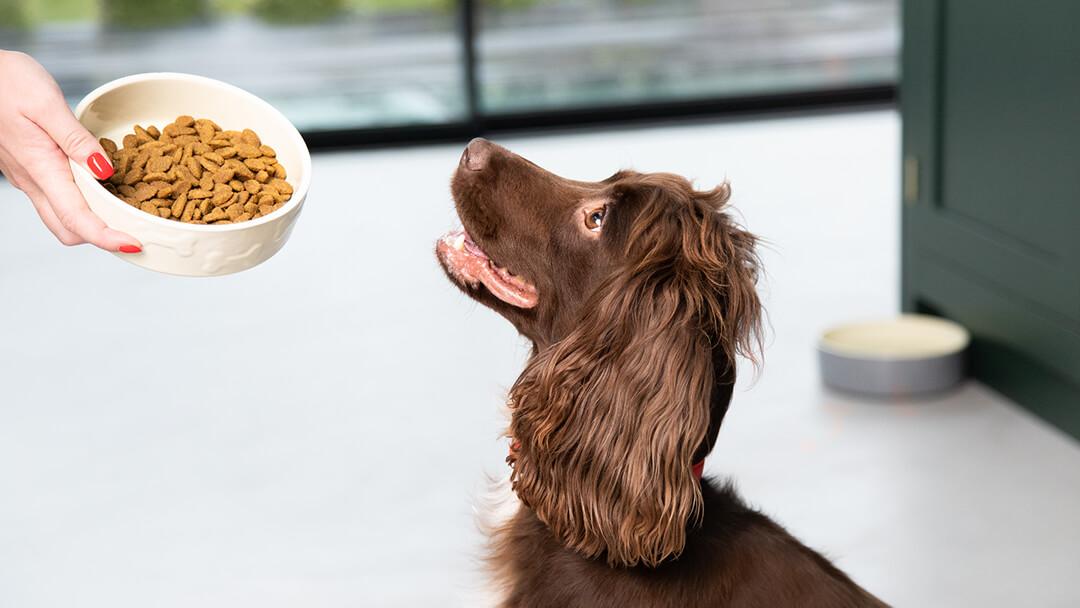Understanding the profound bond we share with our dogs, it’s only natural to want the best for their well-being. Just as our diet influences our mood and energy levels, the same holds true for our furry companions. This article delves into the fascinating connection between what your dog eats and how they feel, shedding light on the importance of nutrition in nurturing a happy, balanced pup. By exploring the impact of various dietary choices, you’ll discover how to tailor your dog’s meals to support not only their physical health but also their emotional well-being. Join us on this journey to ensure your beloved pet thrives in both body and spirit.
Understanding the Connection Between Nutrition and Canine Behavior
In recent years, there’s been a growing awareness of how what we feed our dogs can significantly influence their behavior. Just like humans, dogs are affected by the nutrients they consume. A balanced diet can lead to a happier, more stable pet, while an imbalanced one can result in mood swings or anxiety. Proteins are essential as they provide amino acids that are the building blocks of neurotransmitters, impacting mood regulation. A deficiency in certain amino acids can lead to increased aggression or hyperactivity. Furthermore, omega-3 fatty acids play a critical role in maintaining a dog’s cognitive function and reducing inflammation, which can directly affect their mood and energy levels.
- Carbohydrates: These are the primary source of energy for dogs. A lack of sufficient carbohydrates can lead to lethargy and irritability.
- Vitamins and Minerals: Nutrients such as Vitamin B6 and magnesium are crucial for a healthy nervous system, helping to keep stress at bay.
- Hydration: Never underestimate the power of water. Dehydration can lead to fatigue and confusion, affecting your dog’s overall demeanor.
To ensure your dog’s diet is positively impacting their mood, consider incorporating a variety of these elements, and always consult with a veterinarian to tailor their diet to their specific needs. By understanding the connection between nutrition and behavior, you can support your furry friend in living a balanced and joyful life.

Choosing the Right Ingredients to Boost Your Dogs Happiness
When it comes to enhancing your dog’s mood through their diet, it’s crucial to focus on quality and variety. Whole, natural foods can make a significant difference in your furry friend’s happiness. Consider incorporating these key ingredients:
- Lean Proteins: Essential for muscle health and energy, proteins like chicken, turkey, and fish provide amino acids that are vital for serotonin production, which can help regulate mood.
- Omega-3 Fatty Acids: Found in fish oil and flaxseed, these fats are known to support brain health and reduce inflammation, promoting a calm and balanced demeanor.
- Complex Carbohydrates: Ingredients like sweet potatoes, brown rice, and oats offer slow-releasing energy and can prevent mood swings by maintaining stable blood sugar levels.
- Vitamins and Minerals: Ensure a balanced diet with fruits and vegetables like carrots, spinach, and blueberries, which provide antioxidants and nutrients that contribute to overall well-being.
By prioritizing these nutritious elements, you’ll not only boost your dog’s physical health but also foster a happier and more content disposition.

Creating a Balanced Meal Plan for a Joyful Pup
To ensure your furry friend is wagging their tail with happiness, it’s essential to focus on a meal plan that balances nutrients effectively. Dogs, much like humans, thrive on a diet that supports their physical and emotional well-being. A joyful pup is often a reflection of what goes into their bowl. Incorporating a variety of wholesome ingredients can make a world of difference. Lean proteins such as chicken or fish provide the necessary amino acids, while complex carbohydrates like sweet potatoes or brown rice supply energy for playful activities. Don’t forget the healthy fats from sources like flaxseed or fish oil, which are crucial for brain health and a shiny coat.
- Proteins: Chicken, turkey, fish, beef
- Carbohydrates: Brown rice, quinoa, sweet potatoes
- Fats: Flaxseed oil, fish oil, olive oil
- Vitamins & Minerals: Leafy greens, carrots, blueberries
By ensuring that these elements are part of your dog’s daily diet, you are not just feeding them, but nourishing their soul. Aim for a colorful plate that includes a variety of vegetables and fruits, like carrots and blueberries, which offer essential vitamins and minerals. Remember, a balanced meal plan doesn’t just fill their tummy; it enhances their mood, making every day a joyful adventure for your beloved companion.

Recognizing Signs of Dietary Influence on Your Dogs Mood
Understanding how your dog’s diet influences their mood can be a rewarding journey for any pet owner. Just like humans, dogs can exhibit noticeable changes in behavior based on what they eat. Some common indicators that your dog’s diet might be affecting their mood include:
- Lethargy or Hyperactivity: An imbalance of nutrients can lead to your dog feeling overly tired or excessively energetic.
- Anxiety or Aggression: Certain additives or a lack of essential fatty acids might cause increased anxiety or unexpected aggression.
- Digestive Issues: Food intolerances or poor-quality ingredients can result in discomfort, impacting your dog’s overall happiness.
To ensure your dog’s diet supports their well-being, consider evaluating the quality of their food, ensuring it contains balanced nutrients and avoiding ingredients known to cause adverse reactions. Observing your pet’s behavior and adjusting their diet accordingly can lead to a more harmonious and joyful life for your furry friend.

